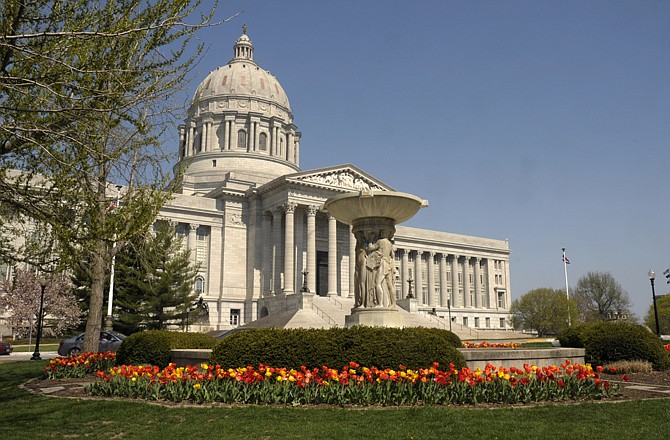State Rep. David Wood, R-Versailles, expects the controversial religious liberty amendment will be back next year.
The bill - which cleared the state Senate in March after supporters forced an end to a 40-hour filibuster trying to block the measure, only to fail in a House committee - was a proposed amendment to Missouri's Constitution that would have guarded businesses and individuals from being sued if they rejected providing services for a same-sex marriage ceremony or reception because of a "strongly held religious belief."
Opponents, including advocates for the lesbian, bisexual, gay and transgender community and the American Civil Liberties Union of Missouri, marked it as creating more discrimination.
A group of Missouri law professors at three different schools said the proposal violated federal law and maybe made it possible for people to break existing criminal laws without being punished.
"You hate to see the Senate go through 40 hours of filibuster for (the bill) and then not have the result come out of it," Wood told the News Tribune on Friday. "But I understand and respect my fellow representatives for the stance they took (voting against it).
"They represent their districts, they did what they thought was right, and that's the system. We will have to come back and see what can be done next year."
Sen. Dan Brown, R-Rolla, said much the same about the paycheck protection bill, which he handled in the Senate when lawmakers passed it earlier this year - and again last week in lawmakers' attempt to override Gov. Jay Nixon's veto.
The Senate fell one vote short of the 23 votes needed for an override, when the vote was taken at about 12:15 a.m. Friday.
"We'll have a caucus meeting later on in the year, when we've had time to reflect, and we'll see where we go from here," Brown told reporters after the legislative session ended Friday. "We're all thinking, and we continually strategize. And we're going to have a change in the (governor) - and that tremendously affects how we approach a lot of different legislative things we would like to get done around here."
Term limits prohibit Nixon from seeking a third four-year term.
Four Republican candidates - Lt. Gov. Peter Kinder, former House Speaker Catherine Hanaway, St. Louis businessmen John Brunner and Eric Greitens - are competing for the voters' Aug. 2 primary selection as the GOP candidate.
Many consider Attorney General Chris Koster as the Democrats' likely November candidate, although three other candidates - Leonard Steinman II, Eric Morrison and Charles B. Wheeler - are on the primary ballot, as well.
Lawmakers have said for several years Nixon hasn't worked well with them in discussing bills and priorities - although some said that relationship was better this year.
Nixon told reporters Friday, "We do not always agree. And, on issues like the right to vote, the right of working people to organize and on women's health, this session laid bare some stark differences.
"But as Missourians, there's more that unites us than divides us."
Senate Majority Floor Leader Mike Kehoe, R-Jefferson City, said one of the best parts of the just-completed session was both Chambers working well together. "We accomplished what we said we were going to do when we came into it (in January).
"The relationship never diminished at all through some very tough times and tough issues this year."
Nixon said he and his staff will "read every line of every bill" before deciding to sign or veto them.
He has until mid-July to take those actions.

